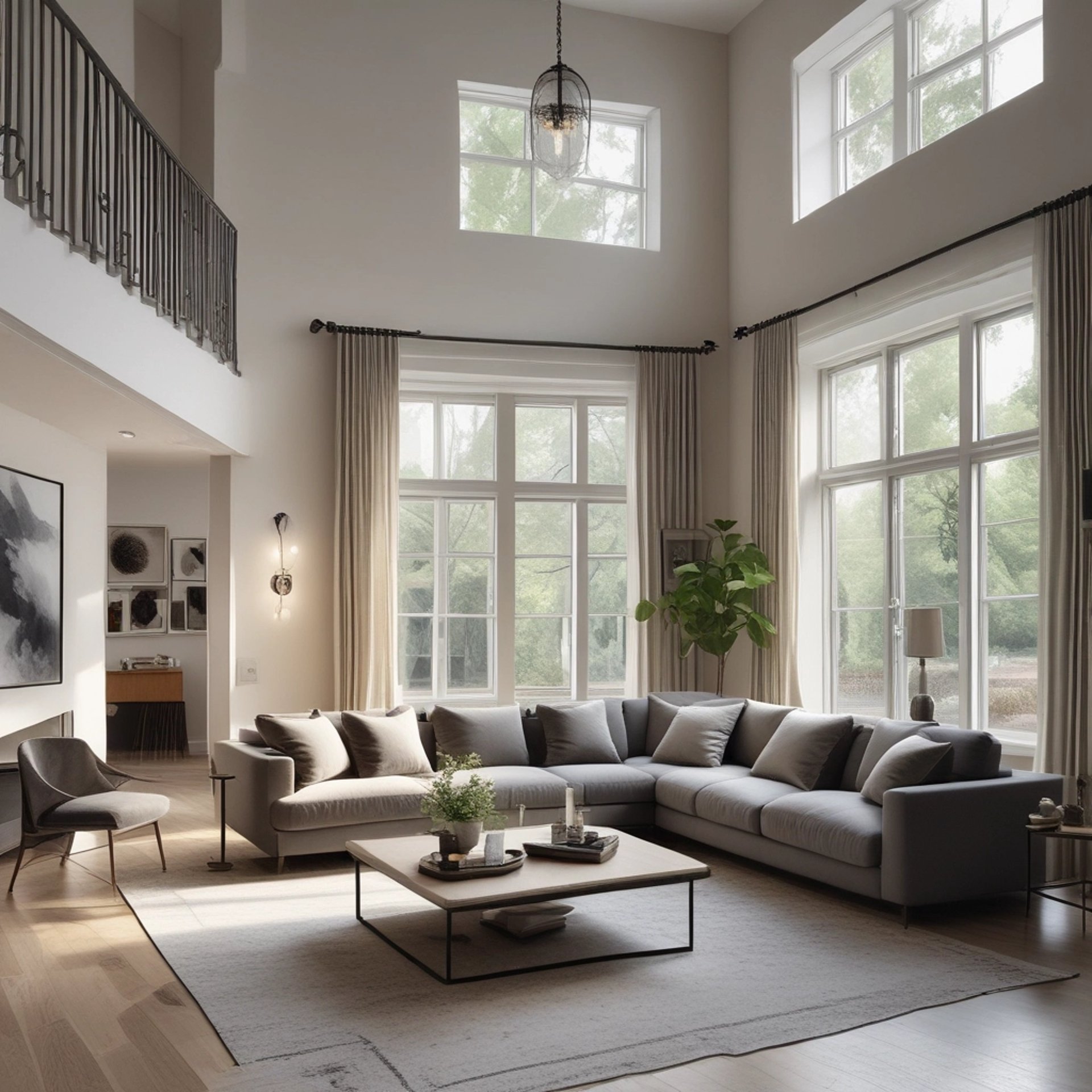How to Evaluate a Living Room: Light, Layout, Proportions, Orientation
The living room is the most important space in any home — yet few buyers know how to evaluate its true quality. Here is the professional guide to assessing natural light, layout, proportions, and orientation before making a purchase.
BUYING PROPERTY IN GREECE
Christos Boubalos - poli.gr
11/25/2025

1. Why the Living Room Defines the Entire Home
The living room is where you:
spend most of your daily life,
host friends and family,
work remotely,
relax and recharge,
shape your experience of comfort and openness.
For this reason, the quality of the living room determines:
overall livability,
emotional comfort,
resale value,
rental demand.
A good living room elevates the entire home.
A poorly designed one limits it — permanently.
2. Natural Light — The Most Important Factor
Natural light is the No.1 component of a premium living room.
✔ How many hours of daylight does it receive?
A good living room should receive:
4–6 hours of direct or strong daylight in winter,
long, extended daylight in summer.
✔ From which direction?
South → steady light all day (premium).
East → bright mornings, ideal for daily routines.
West → warm afternoon light, intense in summer.
North → soft, even light, slightly cooler.
✔ Does the light reach the depth of the room?
If the light stops at the entrance and doesn’t travel inward, the living room feels small and dull.
Tall balcony doors (not just wide ones) make a dramatic difference.
3. The Layout — The Silent Indicator of Premium Design
Layout determines whether a living room:
is functional,
flows naturally,
accommodates furniture easily,
feels spacious,
supports daily living without compromises.
✔ Golden Rules
Rectangular layout → best usability
Square layout → flexibility
Odd angles → usually design traps
✔ What to check:
Is there a clear seating zone?
Does the living room integrate gracefully with the kitchen?
Are there “dead spaces” or awkward corners?
Can you place a sofa without blocking circulation?
Can the room be rearranged easily?
A good layout feels effortless.
A bad layout forces solutions that never truly work.
4. Proportions — What Separates Premium from Average
Proportions are the relationship between:
width and depth,
height and volume,
furniture size and room size.
✔ The living room should match the home’s total area
A general guideline:
70–90 m² home → living room 22–28 m²
100–120 m² home → 28–35 m²
130+ m² home → 35–45 m² (often with open kitchen)
✔ Ceiling height matters
A living room with 2.80–2.90 m height feels 20% larger than one with 2.55 m.
✔ Depth vs light
If the room is too deep and the light does not reach the back, the space will always feel darker and smaller.
Balanced proportions = balanced experience.
5. Orientation — Why South Isn’t Always the Winner
Orientation influences:
daylight,
thermal comfort,
mood,
energy use.
✔ South-facing
ideal light
great winter warmth
− needs summer shading
(perfect if designed correctly)
✔ East-facing
bright mornings
ideal for families
− less afternoon light
✔ West-facing
warm, atmospheric afternoons
− can be hot in July–August
✔ North-facing
even, diffused light
− can feel cooler without good materials
The “right choice” depends on your lifestyle — not just on theory.
6. Balcony Connection — The Real Extension of the Living Room
A premium living room must have:
tall, high-quality balcony doors,
a balcony wide enough to live on,
depth for a table or outdoor seating,
privacy and minimal visual disturbance.
The balcony is not “outside space”.
It is a continuation of the living room.
If the balcony is small, shallow, or poorly oriented, the living room loses a major part of its experiential value.
7. Acoustic Comfort — The Invisible Quality Factor
Noise destroys comfort — even in a beautiful room.
Premium living rooms are designed with:
reinforced walls,
high-quality windows,
acoustic separation from stairwells and elevators,
proper floor and ceiling insulation.
A living room that hears:
neighbors,
elevator machinery,
staircase traffic,
plumbing,
will never feel premium, no matter how it looks.
8. Real Example: The Tymfristou Project by Poli Real Estate
In the Tymfristou development in Marousi, Poli Real Estate designs living rooms based on four pillars:
✔ Maximum daylight
With large, tall balcony doors and optimal orientation.
✔ Ideal proportions
Rectangular layouts that allow full furniture flexibility.
✔ Cross-ventilation
Allowing air and light from two sides for comfort and health.
✔ Acoustic comfort
Through dense walls, quality materials, and smart positioning.
This is why the project stands out as a boutique, high-comfort development — designed for real everyday living.
9. Conclusion
The living room is the heart of the home, and its quality determines:
comfort,
brightness,
spaciousness,
emotional well-being,
rental performance,
long-term value.
When evaluating a living room, always check:
✔ the light
✔ the layout
✔ the proportions
✔ the orientation
✔ the balcony connection
✔ the acoustic comfort
A living room that excels in these areas is not just beautiful —
it is a long-term, future-proof investment.
If you want expert guidance in assessing architectural quality, daylight, and layout in potential properties, Poli Real Estate can help you choose homes that truly stand out.
Brokerage
Contact
info@poli.gr
+30-6972-666688
+30-6972-885885
© 2025 Poli Real Estate. All rights reserved.
